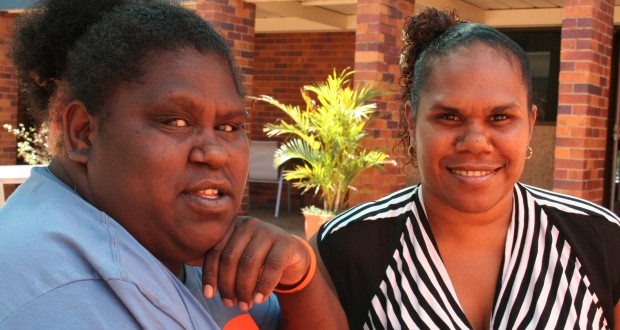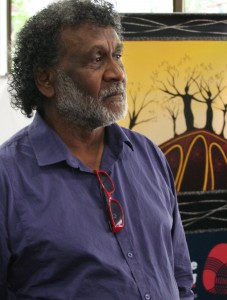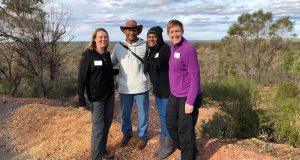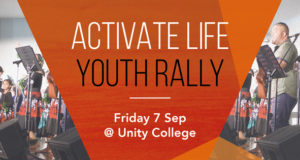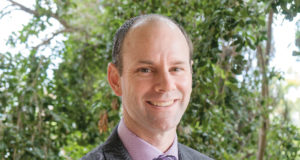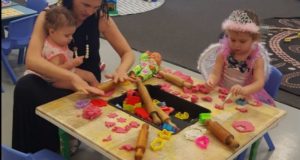Emerging Indigenous leaders and elders from across Australia are forging new partnerships through the Grasstree Gathering. Dianne Jensen reports.
“Preaching in your own skin” is a catchphrase that sums up the cultural and spiritual empowerment of a people, and it resounded at the National Grasstree Gathering Emerging Indigenous Christian Leaders Conference in Brisbane.
The Grasstree event in early October followed the inaugural conference last year in Melbourne. It brought elders and educators together to mentor a new generation of nearly 40 emerging Indigenous leaders from across Australia.
There were six representatives from the Uniting Church and Uniting Aboriginal and Islander Christian Congress: Joya Waia (Weipa), Ellen Hobson (Bamaga), Joylene Naylon (Logan Central Multicultural) and Sarah-Jane Hollingsworth, Otila Leone and Sono Weatherall from the Zillmere Uniting Church congregation.
Breaking down the isolation
The 2013 Grasstree Gathering Coordinator Brooke Prentis, chairperson of the Churches Together Indigenous People’s Partnership (CTIPP), is passionate about equipping young people for ministry. She believes that the network being developed through Grasstree is pivotal to breaking down the isolation experienced by many Indigenous Christians.
“Each of us as individuals is called to a certain ministry, like those of us in the Salvos, the Uniting Church, the Pentecostal mob, and all the other church mobs, but we often feel very isolated. If you take my example, as a full church member of the Salvation Army, I’m the only Aboriginal church member in all of South Queensland.
“When we get together at Grasstree, you are with a group that understands the challenges and the heartbreak that you often encounter in your ministry,” she says.
Advocates for change
The four-day event included some of Australia’s key Indigenous Christian leaders, such as Uncle Graham Paulson, Uncle Graeme Mundine, Rev Ray Minniecon, Aunty Nellie O’Chin, Uncle Rex Japanangka Granites and Aunty Jean Phillips, an Aboriginal Christian leader who is the Vision Leader of the Grasstree Gathering.
Through Bible studies, workshops and the sharing of testimonies and stories, the elders encouraged young leaders to be passionate change advocates.
Uncle Graeme Mundine, Executive Officer of the Aboriginal Catholic Ministry in the Catholic Archdiocese of Sydney, told participants that one of the first steps was to agree on common goals and outcomes, “and on where we believe the Holy Spirit is leading us”.
He said that his generation had received a bad model of leadership from the missionaries.
“They were the pastors and they sent us out as evangelists. It’s time for us to learn how to change the role. We’ve got the language of it; it’s time to put it into action.
“I can’t guarantee that it will be easy. But deep down inside you know that there are wrongs happening and we’ve got to do something about it … always remember who you are, and where you come from.”
Aunty Jean Phillips encouraged the young leaders to challenge the churches about their models of Indigenous ministry, especially in resourcing.
“You need to be speaking up, educating the non-Aboriginal church people and our own folk,” she says. “People out there want to support you. We need you. Come in with your vision.”
Beyond denominational boundaries
The coming together of people across denominational and theological boundaries is a key development in the empowerment of Indigenous Christians, says Brooke Prentis.
“First of all we’re Christian, and second we can talk about our cultural identity as Aboriginal and Torres Strait Islander people. We just don’t get those opportunities to get together and share our stories and our testimonies and what our dreams and our hopes are.
“The people we brought together are all doing work in their community, but don’t necessarily feel empowered to be leaders. I think that’s what Grasstree is trying to achieve, and once we empower our own leaders then we will start to see some real transformation in communities.”
The stories shared from urban, regional and remote communities underscored the reality that Indigenous ministry and the Aboriginal experience is different to that of mainstream Australians, she adds.
“As an Indigenous minister, in a week you could have two funerals, you have to provide five houses for people, you’re trying to get kids to school, you’re trying to feed families, you’re trying to do a sermon—all those things. If you’re a non-Indigenous minister you might only have a funeral a couple of times a year. You might have a homeless person come in maybe once a week. You probably haven’t often dealt with child safety—many of us have taken in kids as foster or kinship carers.”
The experience of ministering in a specific cultural context is a familiar one for Sarah-Jane Hollingsworth from Zillmere Congress, whose church runs a number of outreach programs including supporting local families in crisis.
“Our leadership model is quite different. We very much walk beside people; our pastors will go and knock on that door, and visit people if they are in hospital or sick, and they will chase people up. Which means it’s a lot more work, a lot more hours.
“We are also dealing with people who have a lot of past hurts and that hurt, even though it might have been their grandparent, is passed down in a very real way, in every way imaginable.”
The Grasstree event was an important mentoring experience for Ms Hollingsworth.
“Part of being Aboriginal is that you are told not to question things. In my work at youth camps like Summer Madness, I have noticed that the non-Indigenous children, they question things, they say ‘no’. Murri kids are told not to do that, not from our own people, but out there in the world. Here [Grasstree] you get some tools to go into a situation and deal with it, to advocate on your own behalf.”
Telling the story
Joylene Naylon from Logan Central Multicultural Uniting Church hopes to study youth ministry, after making the difficult decision to move from her home in Port Augusta.
“It’s been a tough time in the past,” she says. “I want to tell people about my story and how I have moved on in my life. It’s good, just looking to the future and seeing how my life can be.
“I have made different choices for myself, and I want the young ones to see what it is to be a Christian.”
A key issue for equipping Indigenous leaders is mentoring and training which embraces and reflects the Indigenous experience, says Ms Prentis, and the next Grasstree conference will encompass learning about the past, however painful.
“What we are looking for at the next Grasstree is to really understand Aboriginal people’s involvement with the church over history. This one, we started to understand where we as individuals have come from. The next Grasstree is about where we as Aboriginal Christians have come from, and how that happened. It’s building that foundation.”
 JourneyOnline
JourneyOnline
